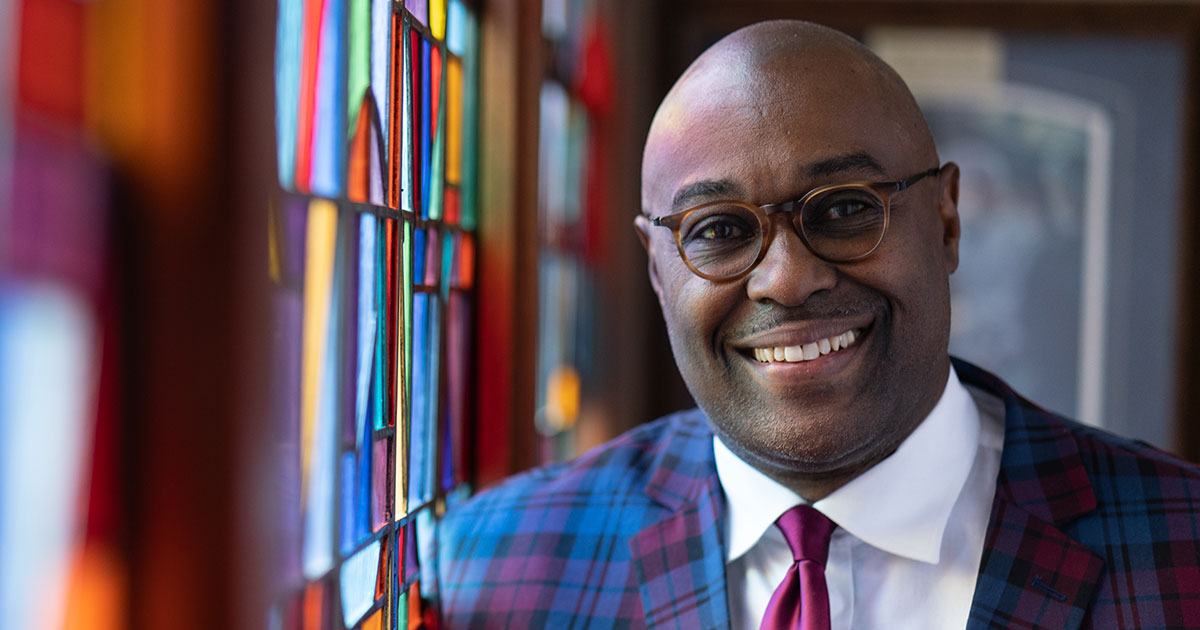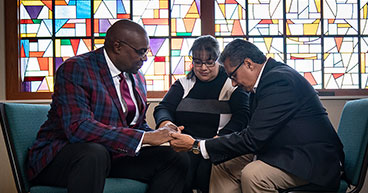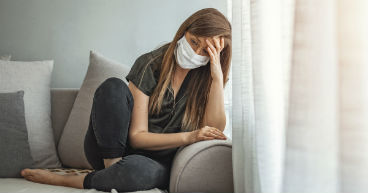
The holiday season is full of family traditions, customs and activities that often trigger warm and wonderful nostalgic memories. They may remind us of the days of our youth, when life was whimsical and carefree. For many, the holiday season is about shopping for the perfect gift, reveling at holiday parties and enjoying family gatherings and holiday meals.
But for some cancer patients—depending on the unique dynamics of their treatment and their mental, emotional and physical state—the holidays may be difficult to endure as they deal with a new normal in their lives.
One of the painful lessons from the COVID-19 outbreak was the arrival of new norms that required unwanted adjustments, lifestyle changes and, in some cases, a complete re-engineering of day-to-day routines. This upheaval may have led to angst and resentment.
Cancer patients may be dealing with similar emotions, especially during the holiday season. After all, the cancer patient didn’t volunteer to be subjected to the challenges they encounter during a cancer journey. And the traditions and routines of holidays past may have to be adjusted or set aside.
Just as cancer patients are dealing with a new normal this season, so are caregivers and loved ones. In this article, we’ll explore considerations to be mindful of during the holidays, including:
- Dietary limitations
- Parties, gatherings and activities
- Shopping and gift giving
- Lost or broken relationships
- Driving the bus
If you've been diagnosed with cancer and want to learn more about spiritual support, behavioral health or other supportive care services for cancer patients and their caregivers, call us or chat online with a member of our team.
Dietary limitations
So many holiday celebrations and activities involve making, serving and enjoying cookies, candies and holiday meals. But cancer may cause dietary and culinary challenges for patients struggling with treatment-induced side effects, such as loss of appetite, nausea, mouth sores or taste changes. Cancer patients may also have dietary restrictions and may not be able to eat certain foods they could before their diagnosis.
Consider preparing foods or substitutes that may help them feel they can participate during those wonderful family gatherings.
Parties, gatherings and activities
Along with dietary limitations, another new normal for some cancer patients may involve low energy levels and fatigue, some of the most common symptoms and side effects of cancer and its treatments.
Keep in mind that some patients may not have the stamina for extended holiday festivities and gatherings. They may not feel up to attending dinners or celebrations, and if they do, they may only be able to participate for short periods of time.
Also, cancer patients, especially those who have undergone chemotherapy or a stem cell transplant, may have compromised immune systems. So, attending large gatherings or making long trips to see family, especially by plane, may expose them to a high risk of infection.
Shopping and gift giving
Cancer patients may simply have no emotional desire to engage in some long-held traditions of engaging in gift-giving holidays shared by many. Beyond the physical toll this may take, the emotional repercussion of the exercise could evoke sadness, triggered by the idea of no longer having the gift of good health, normal body functionality, hair, etc.
Also, remember cancer may cause financial burdens that prevent patients from splurging on gifts for others.
Lost or broken relationships
The holiday seasons may often remind us of relationships of loved ones no longer accessible. Despite the overwhelming increase in the number of cancer survivors over the past three decades, cancer patients still have a heightened awareness and connection with their mortality. In many cases, they ruminate about lost loved ones and once-meaningful relationships.
Be mindful that sadness, regret and the need for forgiveness and confession may manifest during this time, requiring an attentive listening ear rather than a rum cake or Christmas card.
Driving the bus
Holiday party planners may get swept up in the nostalgia and excitement of the moment and dive headfirst into their holiday agenda and plans. But please don’t forget that what may be most important for many cancer patients this holiday season is for you to follow their lead and allow them to “drive the bus.” Allow them to take the wheel this season by recognizing and respecting their needs, wishes and desires.
Many cancer patients may not want to hurt your feelings by being viewed as a “wet blanket” during the holiday season. In many cases, they may seek your unsolicited permission to speak freely about their mental and emotional state and their willingness or ability to participate in festivities.
While the holiday season is joyful for many, it may also trigger feelings of depression, stress and anxiety. That may be especially true for cancer patients, who may be dealing with body or self-esteem issues or may not have the physical ability or energy levels to engage during the holiday season.
So, this season of gifts and giving, let’s meet the cancer patients in our lives where they are and not where we want them to be. Give the gifts that keep on giving—the choice and the voice to opt “in or out” of certain holiday rituals and customs without blame or shame. They’ll be glad you did.
Blessings and happiest of holidays.
If you've been diagnosed with cancer and want to learn more about spiritual support, behavioral health or other supportive care services for cancer patients and their caregivers, call us or chat online with a member of our team.



